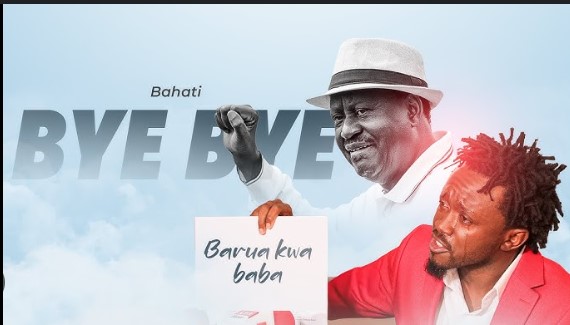Since the death of Kenya’s first Prime Minister, Raila Amolo Odinga, a wave of musicians from household names to rising TikTok stars have flooded streaming platforms and social media with tribute songs for him.
Not a day since his death has passed, without new music being released in honor of the enigma Raila Odinga. From soulful benga ballads in Kisumu to heartfelt gospel renditions shared on TikTok and YouTube, every corner of the music scene seemed to find its voice.
Several musicians quickly responded to the passing of Raila Odinga with meaningful musical tributes that highlight both his legacy and the emotions of the moment. For example, Prince Indah’s “Wuod Oganda, Amolo 3 in 1” drops at 6 a.m. in peak symbolic-hours, fusing the Luo Ohangla groove with chant-like refrains of “Baba! Agwambo! Jakom!”, celebrating Odinga’s role as people’s president.
Meanwhile, King Kaka’s “Huu Wimbo Ni Wako Baba” takes a more reflective hip-hop/rap approach, tracing Raila’s journey, “Huu wimbo ni wako Baba natarajia uko salama, nakumbuka ulivyokazana…” and blending admiration with mourning.
And then there’s Bahati’s “Bye Bye Baba” uses a polished production and a video heavy with archival footage and mass-mourner imagery to match national grief with professional presentation. Together these songs illustrate both the depth of feeling and the breadth of styles in the tribute wave, from traditional rhythms to modern beats, making the moment as much a musical outpouring as a political one.
But amid the heartfelt lyrics and emotional visuals, questions are starting to merge, “Are all these artists truly honoring a national icon, or are some using the moment to chase fame and views?”
For example, entertainment commentator Tom Daktari recently took to Instagram to challenge Bahati’s tribute track to the late Raila Odinga. In a video posted on his page, Daktari alleged that Bahati (and by extension other artists) were using the moment of national mourning as a platform to chase YouTube views and online relevance, rather than purely paying homage.
https://www.instagram.com/reel/DP6p8-oDDNu/?utm_source=ig_web_copy_link&igsh=MzRlODBiNWFlZA==
Daktari’s critique centres on the speed and tone of the release. ” Mambo ya kutuambia kimbieni pale YouTube nimeiachilia….we’ve broken a record, we’re not going. I know that’s your own way of mourning lakini wewe weka tu wimbo hapo tutaona” he quipped in Kiswahili.
He suggests the song’s timing and promotional elements raise questions about whether the intention is authentic respect or savvy marketing. While many fans praised the emotional gesture, Daktari’s intervention introduces a counter-narrative, one of commercial opportunism enveloping a moment of collective grief.
The controversy didn’t stop with Tom Daktari’s remarks. Shortly after his post went viral, radio host and comedian Oga Obinna who had also released a song in tribute for Baba, weighed in through a video shared on his Instagram page. In the clip, Obinna appears visibly amused as he addresses Tom Daktari’s criticism, defending Bahati’s creative choice and suggesting that every artist has their own way of expressing grief and admiration.
The debate touches on broader themes in Kenya’s entertainment industry: When does a tribute become a trend? And when does respect become content? As the conversation continues, one thing remains clear in times of national mourning, every release is under heightened scrutiny, and the line between homage and hype becomes especially fine.












